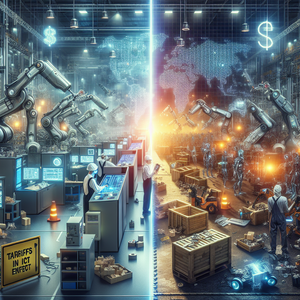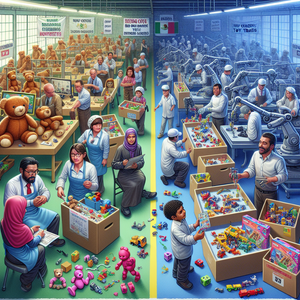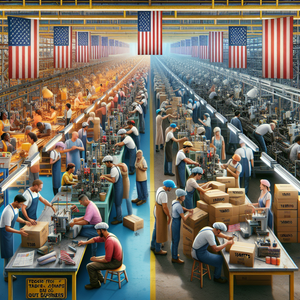
How Tariffs Are Reshaping the Tech Industry: Navigating Opportunities, Challenges, and Trends
The global tech industry is in the midst of rapid transformation, driven in part by the ripple effects of tariffs that were originally introduced during the Trump administration and have persisted under subsequent administrations. These tariffs, targeting imports from major trading partners such as China, Canada, and Mexico, are reshaping the landscape of global trade, with profound implications for supply chains, production strategies, and the competitiveness of U.S. tech companies. Initially intended to bolster domestic industries and reduce reliance on foreign suppliers, these policies have led to a mixed bag of outcomes—some anticipated, others less so.
Job Summaries:
The Wide-Reaching Impact of Tariffs on the Tech Industry:
- The introduction of tariffs has triggered both challenges and opportunities for the tech industry.
- Tariffs have increased costs for critical components like semiconductors and circuit boards, forcing companies to absorb costs or pass them on to consumers.
- Companies are reshoring manufacturing operations to the U.S. and diversifying supply chains to countries like India and Vietnam.
- Supply chains have been redesigned, and new specialized roles like trade compliance specialists have emerged to navigate the complexities of tariffs.
- Some see tariffs as a chance to revitalize American manufacturing.
- Others warn of stifled innovation and reduced global competitiveness.
Career Opportunities in a Tariff-Driven Tech Industry:
- The evolving trade landscape has created new career paths and reshaped existing roles.
- Key positions include Trade Compliance Specialist, Supply Chain Analyst, Manufacturing Engineer, Global Logistics Manager, and Reshoring Strategy Consultant.
- These roles focus on ensuring compliance with trade laws, optimizing supply chains, designing efficient manufacturing processes, managing logistics, and guiding reshoring efforts.
- Each role requires specific qualifications and skills, such as expertise in supply chain management, engineering, or international business, and plays a critical role in navigating tariff-related challenges.
The Path Forward: Turning Challenges into Opportunities:
- The tech industry’s response to tariffs highlights a mix of challenges and opportunities.
- Tariffs have spurred innovation, reshoring, and the creation of niche job roles.
- Professionals can leverage this changing landscape to contribute to global trade solutions, enhance supply chain resilience, and drive domestic manufacturing advancements.
- By staying informed, upskilling, and embracing adaptability, individuals can position themselves as valuable assets in an evolving industry.
- The future of the tech industry in a tariff-driven world is characterized by resilience, innovation, and human ingenuity.
The tech industry’s response to tariffs illustrates a dynamic interplay of challenges and opportunities. While tariffs have introduced new costs and complexities, they have also spurred innovation, reshoring efforts, and the creation of niche job roles. For professionals, this changing landscape offers a chance to contribute to global trade solutions, enhance supply chain resilience, and drive advancements in domestic manufacturing. By staying informed, upskilling in relevant areas, and embracing adaptability, you can position yourself as a valuable asset in an industry that is constantly evolving. The future of the tech industry in a tariff-driven world is far from static. It’s a story of resilience, innovation, and the human ingenuity required to navigate an increasingly complex global marketplace.
Explore More Jobs

